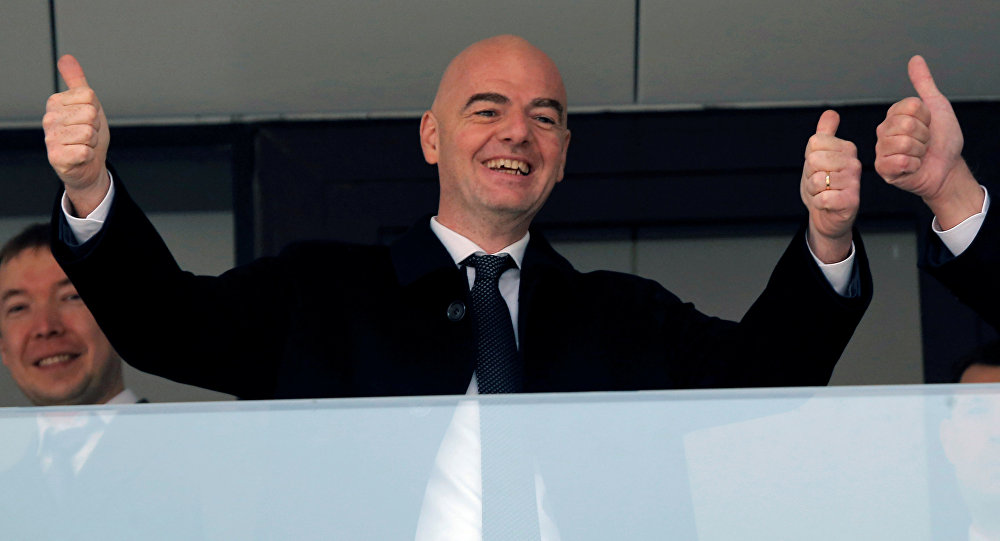
Ivo Daalder and Dina Smeltz
Ivo Daalder is the former US permanent representative on the Council of the North Atlantic Treaty Organization and is president of the Chicago Council on Global Affairs. Dina Smeltz is a senior fellow for public opinion and foreign policy at the council. The opinions expressed in this commentary are solely those of the authors.
Trump had second G20 conversation with Putin
(CNN)Without cameras or fanfare earlier this month, President Donald Trump quietly signed the major Russia sanctions legislation that Congress passed by overwhelming margins in July. Clearly, Trump wasn't happy to have Congress force his hand on Russia — and not just because all presidents seek to preserve flexibility in their approach to foreign policy, which this legislation explicitly curtails.
As candidate and President, Trump has made clear that he seeks better relations with Russia, and these additional sanctions make that ever more unlikely.
Other administration officials, including Secretary of State Rex Tillerson, share the President's opposition to the legislation. "Neither the President nor I are very happy about that," Tillerson said of the sanctions bill. In fact, the secretary of state rushed off to meet with Russian Foreign Minister Sergey Lavrov just days after the bill was signed. Tillerson wanted, as he described, "to find ways that we can bring this relationship back closer towards one another."
Indeed, in an effort to cast the legislation in a more positive light, Tillerson and Trump both maintain that the sanctions "represent the strong will of the American people to see Russia take steps to improve relations with the United States."
But a new survey by the Chicago Council on Global Affairs shows that the American people are not interested in improving relations with Russia. A majority of Americans (53%) say the United States should actively work to limit Russia's power, rather than have Washington undertake friendly engagement with the Kremlin (43%). This is a reversal from last year, when just 39% favored limiting Russian power and 56% said cooperation was the better course.
Conciliation with Russian President Vladimir Putin and his country has been the single most consistent issue in a campaign and an administration that have prized disruption, inconsistency, and misdirection in almost every other respect. Yet few, if any, of the findings in the Chicago Council poll suggest the American people are keen on attempting another reset with Russia.
-- Nine-in-10 Americans think Russia is a threat, with 42% calling it a "critical threat," up from 23% when last asked in 2002. More Americans now consider Russia a "critical threat" than at any time since 1990.
-- Three-quarters (74%) of respondents believe that Russia is working to undermine US power and influence.
-- Just 28% of Americans trust Moscow to deal responsibly with world problems.
-- And on sanctions, a clear majority of Americans favor either maintaining (41%) or increasing (38%) them against Russia.
American antagonism against Russia also can be found in renewed, strong support for NATO — the most visible and strongest alliance opposing Russia in Europe. Seven in 10 Americans (69%) view the Atlantic Alliance, which Trump called "obsolete" not so long ago, as "essential."
Also, for the first time since 2014, when Russia annexed Crimea and invaded Ukraine, a majority of Americans (52%) support sending US troops to defend Latvia, Lithuania, and Estonia if Russia attacked any of these NATO allies. This clear vote of confidence in the 29-member security organization clashes with the President's characterization that Americans are "getting ripped off by every country in NATO."
In fact, a majority of Americans say that US security alliances in Europe benefit both the United States and our allies (53%) or mostly benefit the United States (8%); only 20% think these alliances mostly benefit our allies. And even on the issue of funding NATO, the White House seems out of step with the public. A full 59% of Americans say the United States should encourage greater allied defense spending through persuasion and diplomatic means.
Less than four in 10 (38%) respondents said the United States should instead withhold its commitment to defend NATO members until they have paid, a strategy Secretary of Defense James Mattis hinted at earlier this year, and has been implied by Trump's reluctant and tepid endorsement of the collective defense agreement, Article 5.
The core argument of Donald Trump's campaign and presidency is that he is a more direct conduit for the will of the American people, unmediated by the presumed biases of news organizations, political parties, or government institutions. Yet on Russia and NATO at least, President Trump is at odds with the will of the American people.
It is reassuring, then, that the sanctions passed with a veto-proof majority by Congress, demonstrating that the institutions of government will enact that will even when the President would prefer not to.


_jpg/250px-ElbeDay1945_(NARA_ww2-121).jpg)










